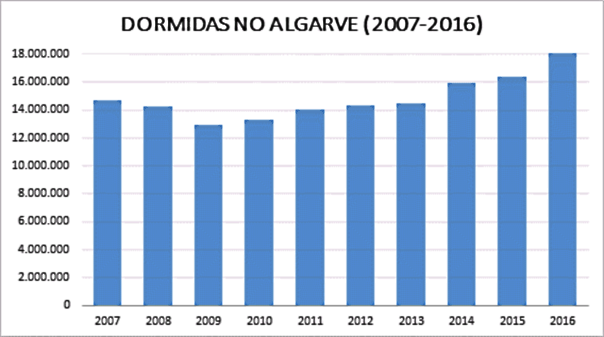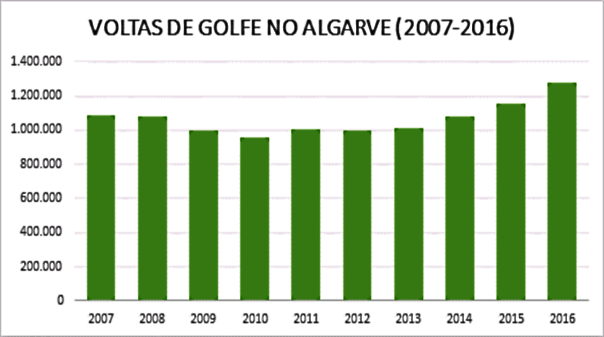 Confirmation of last year’s tourism figures for the Algarve, and Portugal as a whole, have delighted even the most conservative commentators with 2016 now being lauded as an historic year for the country, led by the booming Alharve.
Confirmation of last year’s tourism figures for the Algarve, and Portugal as a whole, have delighted even the most conservative commentators with 2016 now being lauded as an historic year for the country, led by the booming Alharve.
According to a statement from the Algarve Tourist Board’s Desidério Silva, still annoyed at having his budget cut, "After a difficult year at all levels due to the meager resources allocated to us, we have seen an exemplary performance in terms of tourism.
"For a key sector such as tourism, it’s expected that this virtuous cycle will continue. We continue to invest today to harvest in the future," said the president of the tourist board.
The National Institute of Statistics revealed today that hotels in Portugal received 19.1 million guests and 53.5 million overnight stays last year, a new high.
The breakdown by nationality indicates that the hotel sector received 7.6 million Portuguese guests and 11.4 million foreign tourists – more foreigners than Portugal's indigenous population of 10.5 million.
The 2016 number of overnight stays in hotels, holiday villages and holiday apartments in the Algarve reached 18.1 million, 9% percent more than in the previous year.
Foreigners, led by the British, accounted for 14.2 million overnight stays, 11.9% more than in 2015.
Total regional hotel revenues closed the year 2016 with a sharp increase from the previous year, in the order of 19.4%, to a record value of €904.6 million - much to the despair of hotel workers for many of whom, already low pay has been frozen for years on account of 'poor trading.'
Faro airport recorded 7.6 million passengers, a new record and 18.5% up on 2015.
Through the airport, UK tourists were the biggest group, taking 3.9 million trips, followed by Germany with 882,000; Ireland with 684,000; the Netherlands with 660,000 and France, with 418,000 passengers.
As for golf, 2016 recorded about 1.3 million rounds of golf played, an increase of 10.5% over the previous year.
However these figures are dissected, the 2016 trend was sharply upwards with the Treasury benefiting hugely from a booming tourism sector in the Algarve.
The government is determined to risk the appeal of the region by pressing ahead with its licensing of oil and gas exploration concessions without having analysed the immedialte and residual cost to the economy of an oil spill affecting the Algarve and Alentejo coastlines. To those involved in tourism, the Algarve's largest industry, the oil threat is unacceptable with regional busienss associations, environmental groups and councils determining that the governement will not risk the golden goose that is Algarve tourism.
























